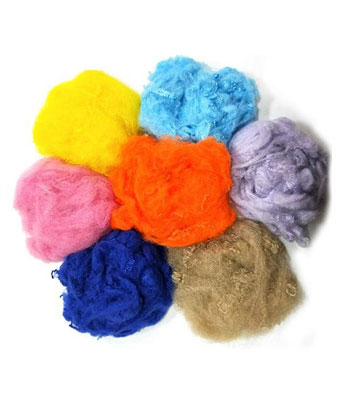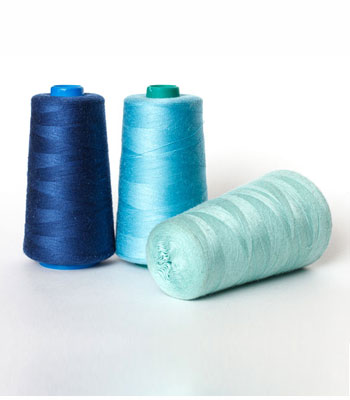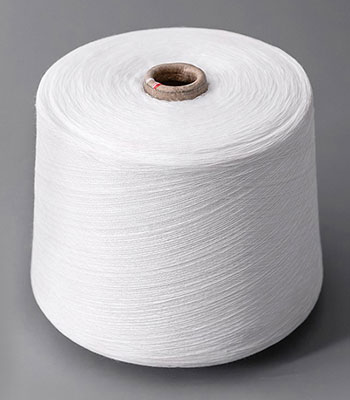Polyester fibers
$0.00These synthetic fibers are produced from the polymerization of the viscosity of dimethyl terephthalate or Terephthalic acid and Ethylene glycol in the procedure which is named melt spinning. Polyester fibers are found in the market with other commercial names such as Dacron and Terylene. These fibers are used in making carpets, floor coverings, and sleeping products like pillows, quilts, mattresses, and dulls. Also Polyester fibers are mainly used in garments, clothes, different types of textiles. Their resistance against constant, heavy movements and their water resistance make them count as a perfect fiber to use as an ideal fiber in wet and humid environments.
Polyester fibers
$0.00These synthetic fibers are produced from the polymerization of the viscosity of dimethyl terephthalate or Terephthalic acid and Ethylene glycol in the procedure which is named melt spinning. Polyester fibers are found in the market with other commercial names such as Dacron and Terylene. These fibers are used in making carpets, floor coverings, and sleeping products like pillows, quilts, mattresses, and dulls. Also Polyester fibers are mainly used in garments, clothes, different types of textiles. Their resistance against constant, heavy movements and their water resistance make them count as a perfect fiber to use as an ideal fiber in wet and humid environments.
Polyester fibers
$0.00These synthetic fibers are produced from the polymerization of the viscosity of dimethyl terephthalate or Terephthalic acid and Ethylene glycol in the procedure which is named melt spinning. Polyester fibers are found in the market with other commercial names such as Dacron and Terylene. These fibers are used in making carpets, floor coverings, and sleeping products like pillows, quilts, mattresses, and dulls. Also Polyester fibers are mainly used in garments, clothes, different types of textiles. Their resistance against constant, heavy movements and their water resistance make them count as a perfect fiber to use as an ideal fiber in wet and humid environments.
Polyester Yarn
$0.00The largest share of produced yarns including synthetic and natural is made up of the polyester fibers. Polyester fibers, like all other synthetic fibers, are manufactured industrially. In terms of characteristics, they are good alternative for natural fibers, such as cotton. To produce polyester, the combination of dimethyl terephthalate and polyethylene glycol or terephthalic acid (a substitute for dimethyl terephthalate) is used in the vicinity of proper catalysts.
Polyester Yarn
$0.00The largest share of produced yarns including synthetic and natural is made up of the polyester fibers. Polyester fibers, like all other synthetic fibers, are manufactured industrially. In terms of characteristics, they are good alternative for natural fibers, such as cotton. To produce polyester, the combination of dimethyl terephthalate and polyethylene glycol or terephthalic acid (a substitute for dimethyl terephthalate) is used in the vicinity of proper catalysts.
Polyester Yarn
$0.00The largest share of produced yarns including synthetic and natural is made up of the polyester fibers. Polyester fibers, like all other synthetic fibers, are manufactured industrially. In terms of characteristics, they are good alternative for natural fibers, such as cotton. To produce polyester, the combination of dimethyl terephthalate and polyethylene glycol or terephthalic acid (a substitute for dimethyl terephthalate) is used in the vicinity of proper catalysts.
White Yarn
$0.00A textile yarn is a continuous strand of staple or filament fibers arranged in a suitable form for weaving, knitting, or other form of fabric assembly. Also, a yarn is a textile product of substantial length and relatively small cross-section consisting of fibers with twist and/or filaments without twist. The yarn can be twisted with one or more yarns to increase value or aesthetics.
White Yarn
$0.00A textile yarn is a continuous strand of staple or filament fibers arranged in a suitable form for weaving, knitting, or other form of fabric assembly. Also, a yarn is a textile product of substantial length and relatively small cross-section consisting of fibers with twist and/or filaments without twist. The yarn can be twisted with one or more yarns to increase value or aesthetics.
White Yarn
$0.00A textile yarn is a continuous strand of staple or filament fibers arranged in a suitable form for weaving, knitting, or other form of fabric assembly. Also, a yarn is a textile product of substantial length and relatively small cross-section consisting of fibers with twist and/or filaments without twist. The yarn can be twisted with one or more yarns to increase value or aesthetics.








